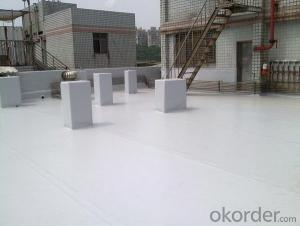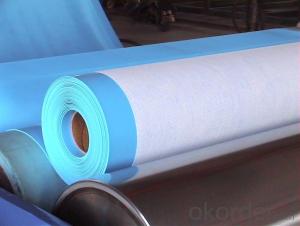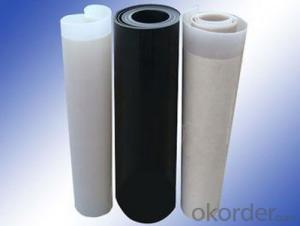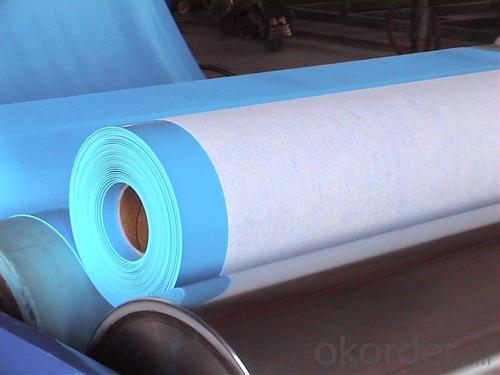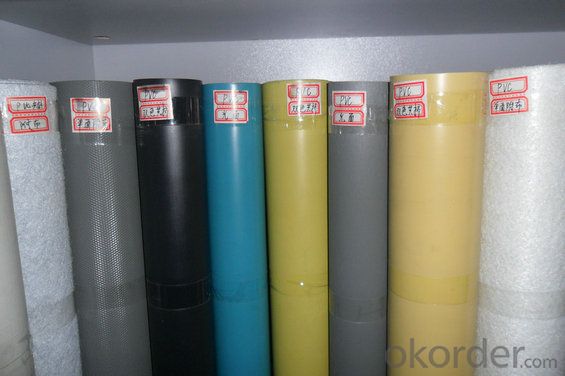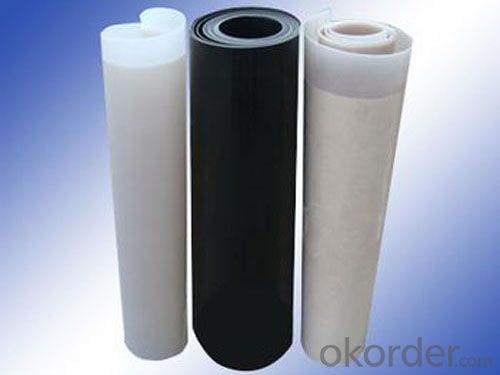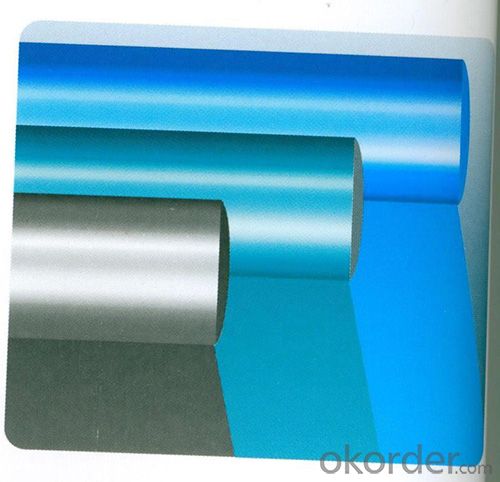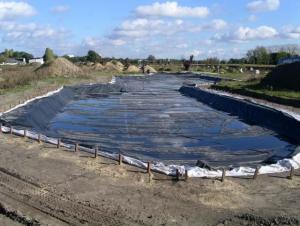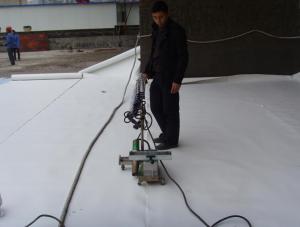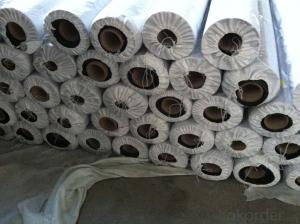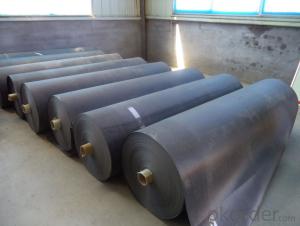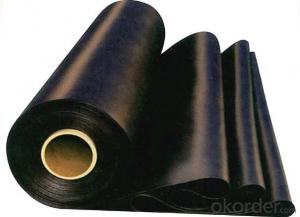Vulcanized EPDM rubber roofing waterproof membrane
- Loading Port:
- Qingdao
- Payment Terms:
- TT OR LC
- Min Order Qty:
- 20000 m²
- Supply Capability:
- 600000 m²/month
OKorder Service Pledge
OKorder Financial Service
You Might Also Like
Product Description of Vulcanized EPDM rubber roofing waterproof membrane:
EPDM waterproof membrane is of high elasticity among high polymer waterproof materials and becomes a world-popular waterproofing material. KEQIANG EPDM waterproof membrane is made from ternary ethylene-propylene rubber, which is designed for waterproofing of exposed and non-exposed applications. KEQIANG EPDM waterproof membrane production adopts the world-advanced equipment of cold feeding extrusion and continuous vulcanization technology.
Features of Vulcanized EPDM rubber roofing waterproof membrane:
·Excellent physical and mechanical performance
· High tearing resistance
· Good deformation adaptability
·High puncture resistance
·High aging resistance
·High UV resistance
Application of Vulcanized EPDM rubber roofing waterproof membrane:
l Roofs, Basement, Toilet
l Industrial and civil building waterproofing
l Geosynthetic liner for swimming pool, channels, irrigation system
l Especially suit for projects with high requirements in durability, anti-corrosion and deformation
Specification of Vulcanized EPDM rubber roofing waterproof membrane:
o. | Item | Unit | Standard Request | |
1 | Variation in Dimension | Thickness | % | ±10 |
Width | % | ±1 | ||
Length | % | No Negative Value | ||
2 | Tensile Strength at Break(Normal Temperature) | Mpa | ≥7.5 | |
Tensile Strength at Break(60ºC) | Mpa | ≥2.3 | ||
3 | Elongation at Break(Normal Temperature) | % | ≥450 | |
Elongation at Break(-20ºC) | % | ≥200 | ||
4 | Tearing Strength | KN/m | ≥25 | |
5 | Water Impermeability(30min) | * | 0.3Mpa Impermeability | |
6 | Bend Temperature | ºC | ≤-40 | |
7 | Heating Expansion/Shrinkage | Expansion | mm | ≤2 |
Shrinkage | mm | ≤4 | ||
8 | Elongation 40%,500x102 | * | No Crack | |
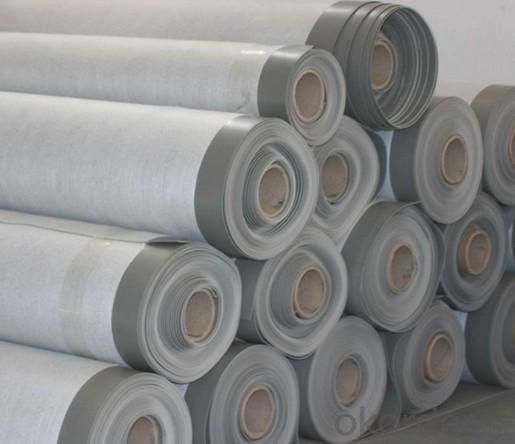
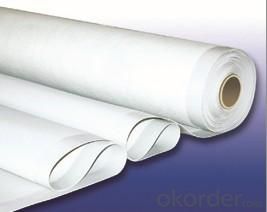
- Q: Can waterproofing membranes be used on balconies?
- Indeed, balconies can benefit from the utilization of waterproofing membranes. Specifically engineered to establish a safeguarding shield against water infiltration, these membranes prove to be an optimal remedy for balconies that are susceptible to weather conditions like rain, snow, and moisture. Generally, these membranes are administered onto the balcony's surface, creating a continuous and impermeable seal that effectively obstructs the passage of water, thus averting harm to the underlying structure. By employing waterproofing membranes on balconies, one can effectively prolong their lifespan, diminish maintenance expenses, and guarantee their general resilience and functionality.
- Q: Does a waterproofing membrane prevent water damage to building materials?
- A waterproofing membrane is specifically designed to shield building materials from water damage. Its purpose is to act as a barrier, preventing water from infiltrating the structure and causing harm. Typically, the membrane is applied to areas prone to water intrusion, such as roofs, basements, and foundations. By creating a watertight seal, it effectively stops water from seeping through and harming the building materials. This safeguard is essential in maintaining the structure's integrity and preventing issues like mold growth, rot, and material decay. However, it's crucial to acknowledge that the effectiveness of a waterproofing membrane can vary based on the product's quality and proper installation. Regular maintenance and inspections are also necessary to ensure the membrane remains intact and continues to safeguard against water damage.
- Q: Can a waterproofing membrane be used on aerated concrete block surfaces?
- Yes, a waterproofing membrane can be used on aerated concrete block surfaces. Aerated concrete blocks are known for their porous nature, which can make them prone to water penetration. Applying a waterproofing membrane on the surface of the blocks can help prevent water from seeping through and causing damage. The membrane forms a barrier that keeps water out while still allowing the blocks to breathe and release any trapped moisture. This helps to maintain the integrity and longevity of the aerated concrete block structures. However, it is important to ensure that the waterproofing membrane is specifically designed for use on aerated concrete blocks, as different materials require different types of membrane for optimal performance.
- Q: Can a waterproofing membrane be used on both residential and commercial buildings?
- Certainly, both residential and commercial buildings can benefit from the application of a waterproofing membrane. These membranes are specially crafted to create a shield against water infiltration, making them indispensable for any structure, whether it be a home or a business establishment. Be it a dwelling, a multi-unit complex, a corporate office, or a retail store, the versatile waterproofing membrane can be effortlessly applied to a variety of surfaces, including roofs, walls, foundations, and basements, effectively safeguarding the building from the perils of water damage and seepage. Furthermore, these membranes come in a wide array of types and materials, ensuring that they can be tailored to meet the specific needs and demands of any building, regardless of its residential or commercial nature.
- Q: Can a waterproofing membrane be used for a plaza deck?
- Yes, a waterproofing membrane can be used for a plaza deck. Waterproofing membranes are commonly used in construction projects to create a barrier against water infiltration, protecting the underlying structures from water damage. Plaza decks, which are elevated outdoor spaces often used for public gatherings or recreational activities, can benefit from a waterproofing membrane to prevent water from seeping into the deck and potentially causing structural issues or compromising the integrity of the deck.
- Q: Can a waterproofing membrane be used for underground parking structures?
- Yes, a waterproofing membrane can be used for underground parking structures. Waterproofing membranes are commonly used in construction to prevent water infiltration and protect the structure from moisture damage. In underground parking structures, where there is a higher risk of water seepage due to the location below ground level, a waterproofing membrane can be applied to the walls, floors, and ceilings to create a barrier against water intrusion and ensure the longevity and integrity of the structure.
- Q: Can waterproofing membranes be used on concrete stairs?
- Yes, waterproofing membranes can be used on concrete stairs. Waterproofing membranes are designed to create a protective barrier against water and moisture, preventing them from seeping into the concrete and causing damage. Applying a waterproofing membrane to concrete stairs can help to prolong their lifespan, prevent deterioration, and reduce the need for costly repairs in the future. It is important to choose a waterproofing membrane that is specifically designed for use on concrete and follow the manufacturer's instructions for proper application.
- Q: Can a waterproofing membrane be used for foundation walls and footings?
- Yes, waterproofing membranes are commonly used for foundation walls and footings to prevent water infiltration and moisture damage. They provide an effective barrier against water and help maintain the structural integrity of the foundation.
- Q: Does a waterproofing membrane have any fire resistance properties?
- No, a waterproofing membrane typically does not have any fire resistance properties. The main purpose of a waterproofing membrane is to provide a barrier against water infiltration and protect the underlying structure from moisture damage. Fire resistance, on the other hand, refers to a material's ability to withstand fire or reduce the spread of flames. Fire resistance properties are typically found in specialized fireproofing materials or coatings, which are designed to prevent the spread of fire and protect the structure in case of a fire incident. It is important to consider both fire resistance and waterproofing requirements when selecting materials for construction projects, as they serve different purposes and may require separate measures to ensure safety.
- Q: Can a waterproofing membrane be used in bathrooms or showers?
- Certainly, bathrooms or showers can benefit from the use of a waterproofing membrane. In fact, it is strongly advised to incorporate a waterproofing membrane in these spaces to avert water damage and leakage. By serving as a barrier, the waterproofing membrane obstructs water from infiltrating through the walls, floors, and other surfaces in the bathroom or shower. Normally, it is applied prior to tiling or finishing the surfaces, offering an additional shield against moisture and guaranteeing that the underlying structure remains free from dampness. This not only aids in preventing the growth of mold and mildew but also extends the lifespan of the bathroom or shower.
Send your message to us
Vulcanized EPDM rubber roofing waterproof membrane
- Loading Port:
- Qingdao
- Payment Terms:
- TT OR LC
- Min Order Qty:
- 20000 m²
- Supply Capability:
- 600000 m²/month
OKorder Service Pledge
OKorder Financial Service
Similar products
Hot products
Hot Searches
Related keywords
